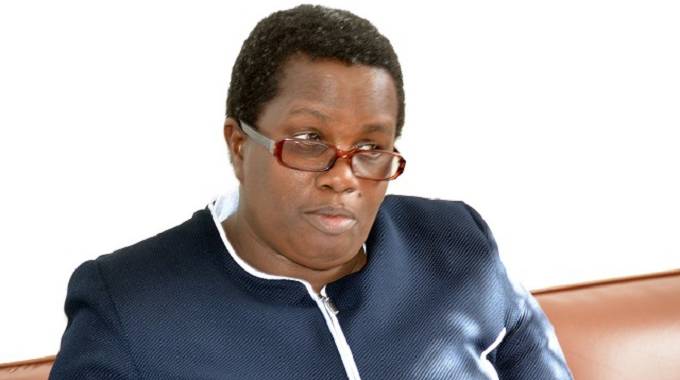Sex education for today’s teenager in the home

Andile Tshuma
Sex is just a taboo subject. I think one of the most awkward and difficult topics to raise in an African home is sex. Growing up, it just wasn’t one of these things that we talked about, certainly not with our parents. However, with children nowadays being exposed to so much content out there, I think the right sex education should be obtained from home.
Awkwardness engulfs a room when a sex scene fills up a television screen when a whole family is glued to their favourite film. It gets so tense you can feel the tension in the air, and can almost touch it. You just can’t do much about it.
You can’t stand up and walk away from the lounge, you probably start fidgeting, start scrolling up and down your phone, or start counting your toes. Someone may try to start a conversation, which is so dry and may die very fast, if the problem scene persists, the most courageous one in the family may gather up enough strength to change the channel, not before the mother starts giving a lecture ukuthi litshintshelani, angithi yikho elifuna ukukubukela? (Why are you changing the channel? That’s all you people ever watch nowadays).
When it got heated to that point, it used to be a signal for me to go to the kitchen and do the dishes, arrange eggs in the fridge, vegetables in the rack, or whatever, as long as I did something to escape that lecture about TV. But that was my teenage hood then.
Today’s teenager is a different person altogether with certain levels of freedom and access to all kinds of information due to information and communication technologies. Some of the information is rewarding and empowering, while other information is damaging to a teen. The extended family doesn’t play the role it used to anymore, so very few families still have the aunties and uncles to give boys and girls important frank talk about life. The home becomes a very important place and must provide the right sex education.
Sex education is a constant development that starts from birth and continues across the developmental life span. During this process, it is crucial to lay a strong foundation for sexual health.
The foundation of a healthy sexual education should start in the home. Parents, guardians, older siblings and other family members should be the key instructors in the sexuality module. Sex talk doesn’t have to be explicit but for parents to show that they care and acknowledge that a teenager is becoming an adult, they should be able to bring up the topic without lecturing but to have a meaningful engagement to equip the child to make better choices .
Bulawayo Provincial Education Director Mrs Olicah Kaira, in an interview recently, stressed the importance of sex education in schools. She, however, urged parents to start the sex talk at home so that the school reinforces on values that have already been cultivated in pupils.
“We are there as the school system to provide sex education to empower pupils to make responsible decisions in life with regards to their sexuality. However, the school system can never replace the home, so morals must also be taught at home so that the education system reinforces morals that already exist in a child. Children come from different backgrounds so each child must have an identity and be aware of their values based on their background. This will make us bring up upright pupils who will make responsible citizens,” said Mrs Kaira.
In my opinion, school-based sexual education programmes should complement and supplement the sexual education children received from their families, religious and community groups. Schools should provide sexual education as a tool to help reinforce what was taught at home. Schools can use sexual education classes to help students to build self-esteem and self-respect, decrease their risk of teenage pregnancy, and make them more aware of sexually transmitted diseases and how to prevent them from occurring. Sexual education is more than just “saying no” (abstinence). It’s about educating teenagers about better ways to inform themselves and others about sex, sexual orientation.
I think as an adult, it may be challenging to explain your concerns to your child, ward, or younger sibling. You may feel embarrassed. But this is a great opportunity to act as a role model for your teen with regards to healthy communication. Convey to your teenager that you are available to answer any questions they have. When they do have questions, respond without judgment, focusing on the facts. If your child feels self-conscious about opening up to you, they’ll try to find the information they need elsewhere and it may not be accurate.
Keep in mind that a teenager may not be comfortable talking to you about sex. They may be protective of their privacy, and may also feel that they already have most of the facts they need about sex and pregnancy. But they still want their parents to be involved in their lives. Take advantage of natural opportunities to talk. The next time you pass by a clinic, bring up the topic again.
Discussing with your teen whether it is the right time or not to become sexually active is important.
Teens need to know that sex won’t heal a troubled relationship. Sex is not proof of adulthood.
Sex carries with it major responsibilities. Is your teen ready for them?
If these are your concerns, share them with your teen. Convey that, while you want him to be safe, you also hope he’s having sex for positive reasons.
You should also stress that, apart from abstinence, condoms are the only method of contraception that offers reliable protection from sexually transmitted diseases.
If we want teens to grow up with a healthy attitude, and practise safe sex, then parents and teachers need to feel comfortable talking about this complex and emotionally charged topic. Better attempt to talk about the awkward subject than to wait until it is too late, with an unplanned pregnancy, or an incurable disease. — @andile_tshuma.










Comments